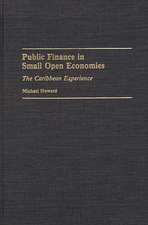The Lessons of History
Autor Michael Howarden Limba Engleză Paperback – 28 iul 1992
“The vital questions which confront not only students of war but all concerned with peace and security are, why wars happen; how, if necessary, they should be fought; and above all how they can be prevented…An understanding [of these issues] is impossible without some insight into the way in which societies have developed in the past and with them their cultures and their value systems.”—Michael Howard
This important book by one of the most eminent military historians in the world discusses the processes of historical change that spawned the European wars of the twentieth century. In a series of elegantly written essays, Michael Howard ponders the continuing significance of nationalism and its relationship to the growth of industrial societies, modernization, and war. He explores the conflicting ideologies that arose from industrialism, tracing the development of new political organisms and attitudes as mass communications and universal education raised and transformed the level of political consciousness throughout the world.
Howard argues that, although industrialization may tend to reduce belligerence by producing societies dedicated to material welfare rather than heroic achievement, organized violence remains a norm. In an introduction, he links these themes with the emergence of perestroika and glasnost in the Soviet sphere, with the difficulties experienced by Third World countries in creating viable political and economic communities, and with a Western bloc in which social tensions continue to increase.
This important book by one of the most eminent military historians in the world discusses the processes of historical change that spawned the European wars of the twentieth century. In a series of elegantly written essays, Michael Howard ponders the continuing significance of nationalism and its relationship to the growth of industrial societies, modernization, and war. He explores the conflicting ideologies that arose from industrialism, tracing the development of new political organisms and attitudes as mass communications and universal education raised and transformed the level of political consciousness throughout the world.
Howard argues that, although industrialization may tend to reduce belligerence by producing societies dedicated to material welfare rather than heroic achievement, organized violence remains a norm. In an introduction, he links these themes with the emergence of perestroika and glasnost in the Soviet sphere, with the difficulties experienced by Third World countries in creating viable political and economic communities, and with a Western bloc in which social tensions continue to increase.
Preț: 243.39 lei
Nou
Puncte Express: 365
Preț estimativ în valută:
46.57€ • 48.62$ • 38.54£
46.57€ • 48.62$ • 38.54£
Carte tipărită la comandă
Livrare economică 04-18 aprilie
Preluare comenzi: 021 569.72.76
Specificații
ISBN-13: 9780300056655
ISBN-10: 0300056656
Pagini: 217
Dimensiuni: 156 x 235 x 17 mm
Greutate: 0.35 kg
Editura: Yale University Press
Colecția Yale University Press
ISBN-10: 0300056656
Pagini: 217
Dimensiuni: 156 x 235 x 17 mm
Greutate: 0.35 kg
Editura: Yale University Press
Colecția Yale University Press










